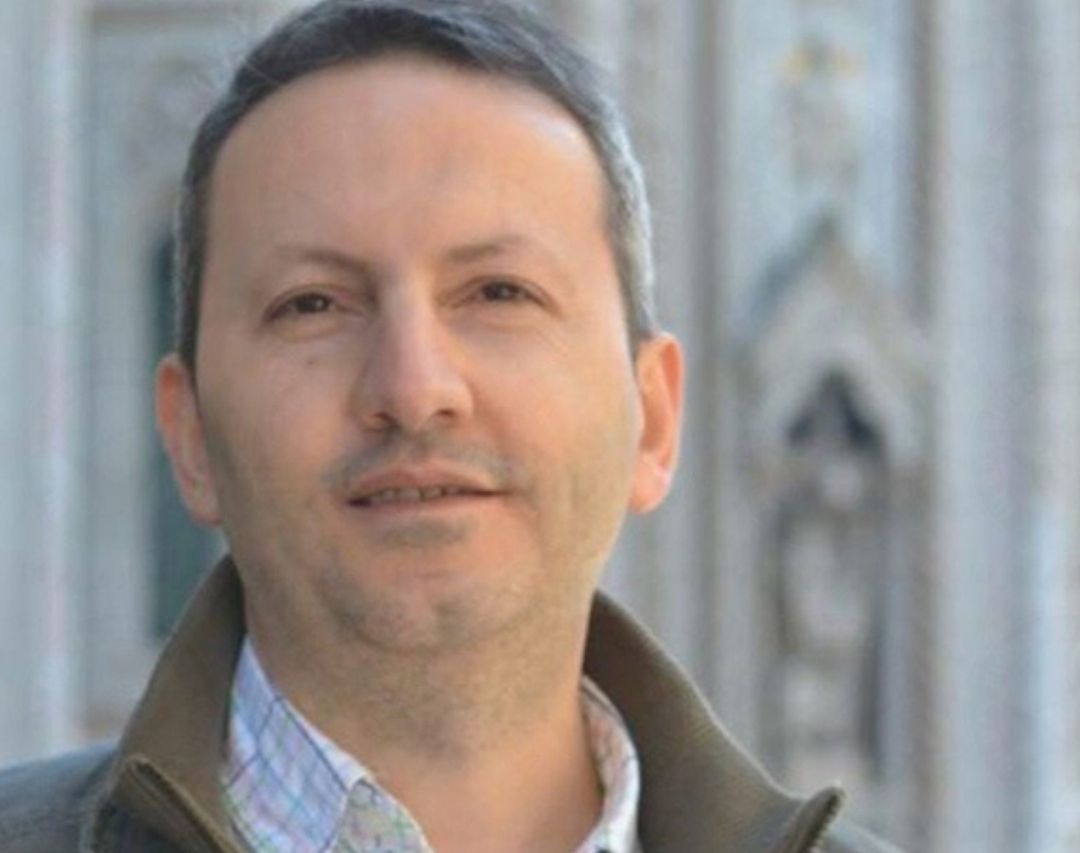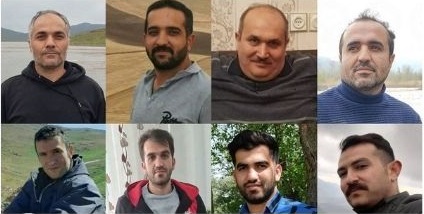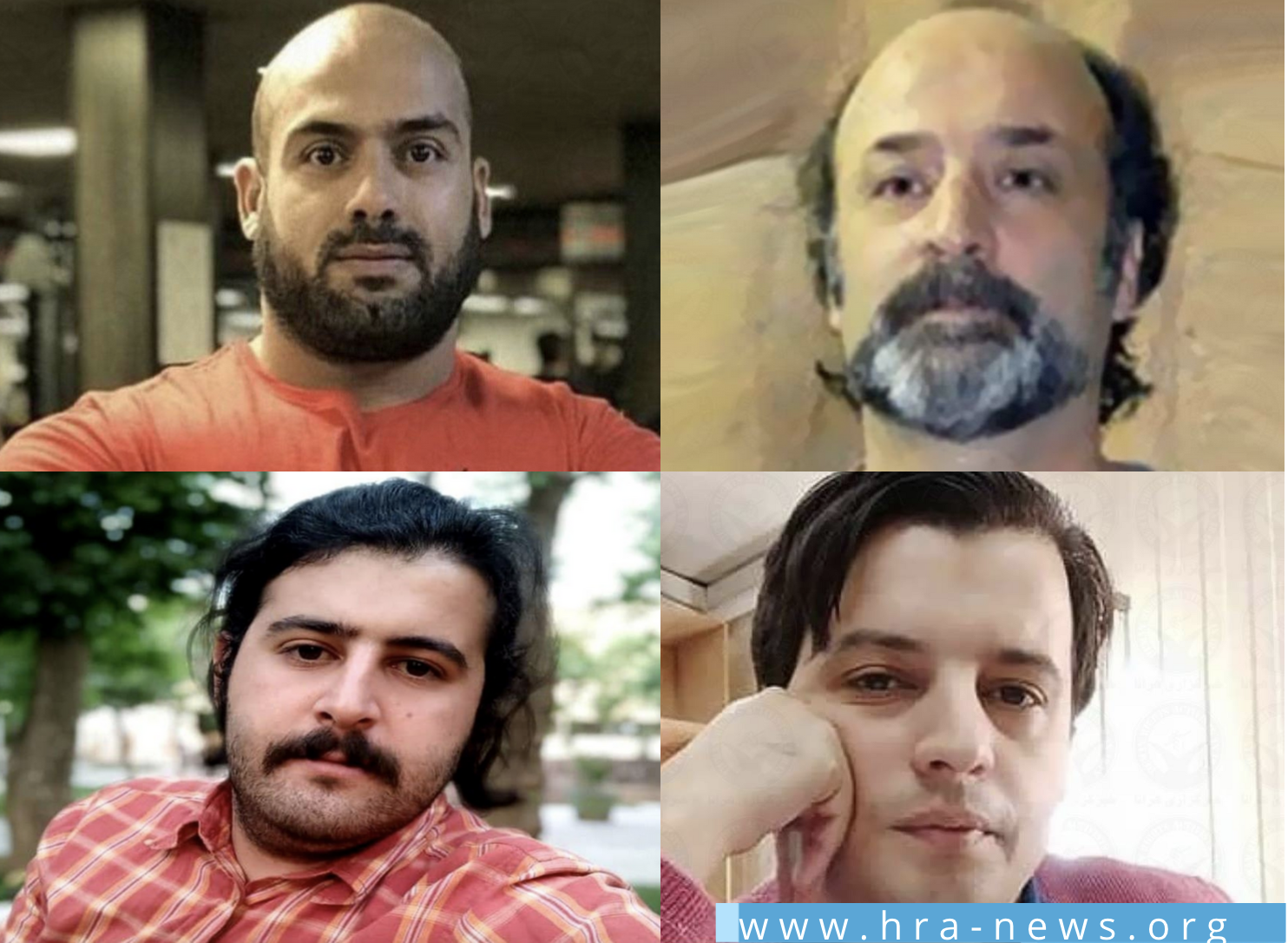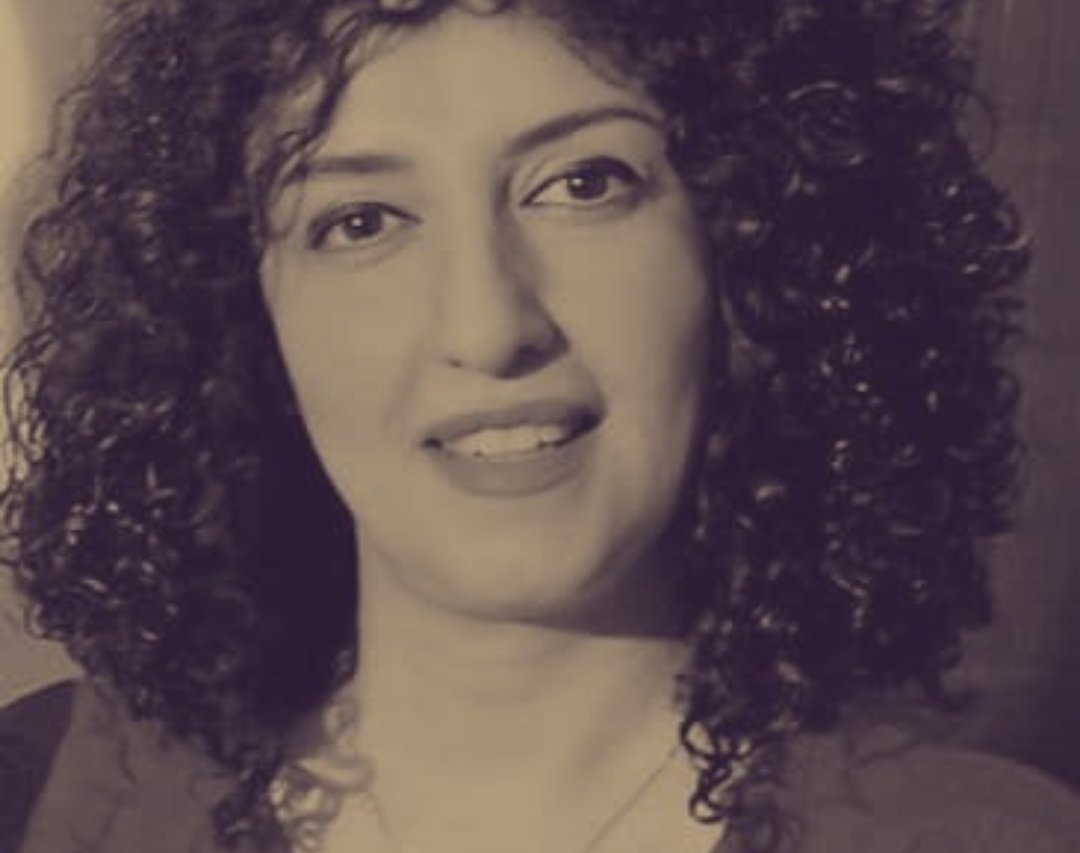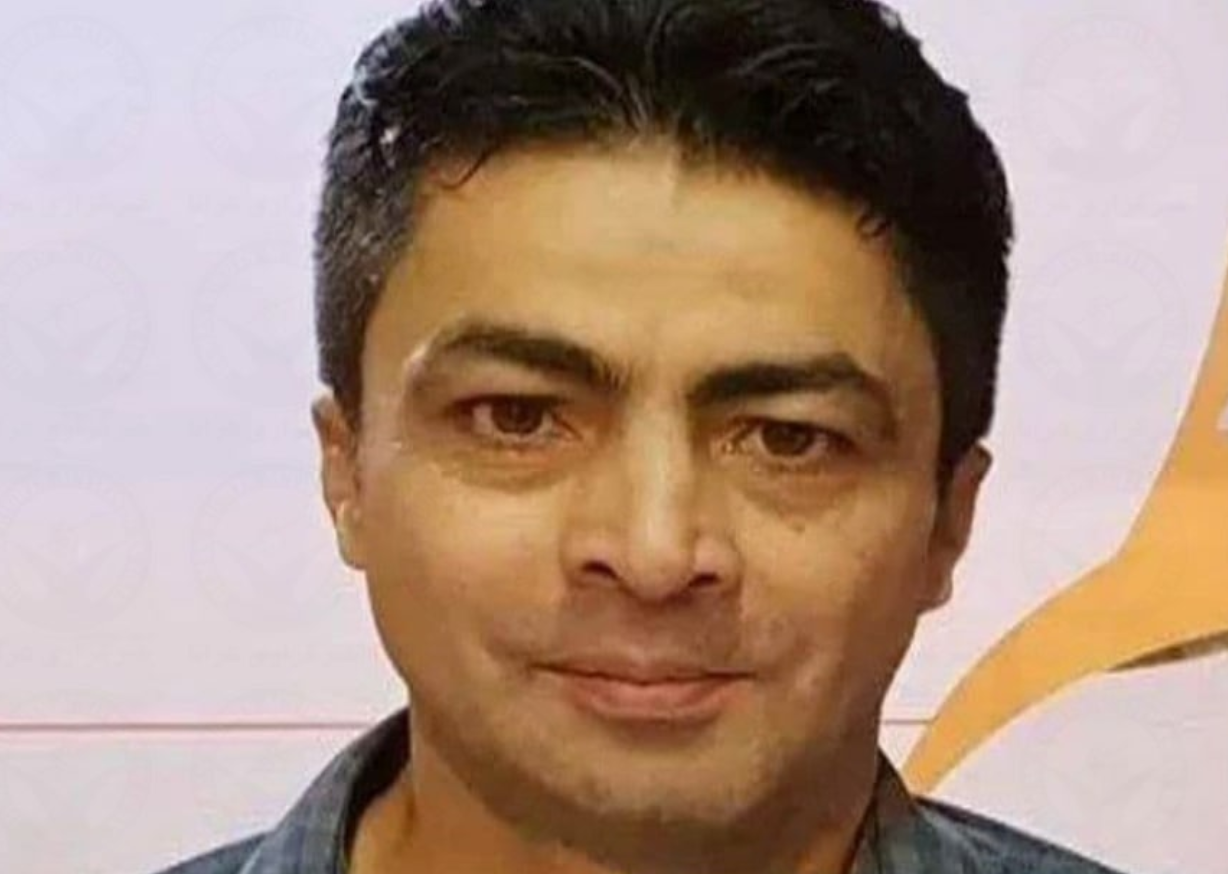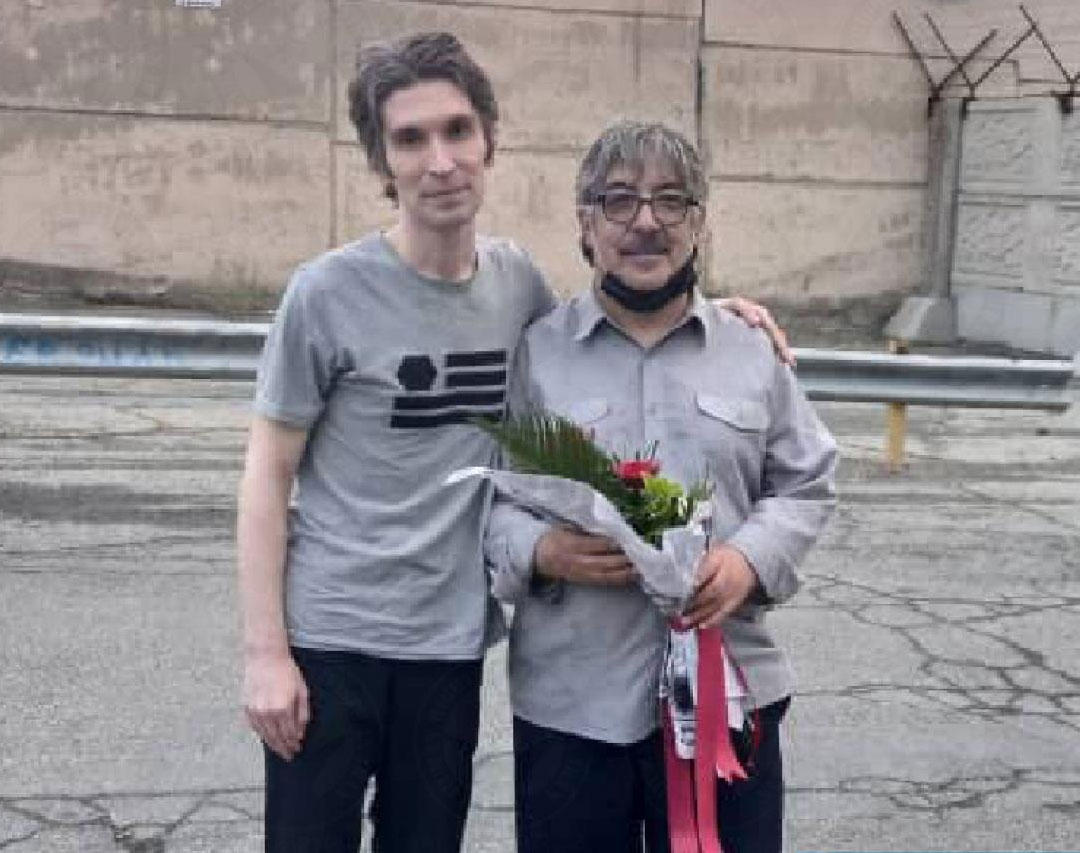Khalid Pirzadeh on a hunger strike in the Greater Tehran Prison
On May 31, political prisoner Khaled Pirzadeh went on a hunger strike for the second time this year in the Greater Tehran Prison.
According to HRANA, the news agency of Human Rights Activists, Pirzadeh has been denied visitations and leave in the 25 months since his imprisonment.
Earlier this year, Pirzadeh went on a hunger strike following the failure of authorities to fulfill their promise to agree to parole. Pirzadeh ended his hunger strike in March after authorities promised that his demands would be met.
In May of 2019, the political prisoner was sentenced by Branch 28 of the Revolutionary Court of Tehran, headed by Judge Mohammad Moghiseh, to 5 years in prison, and an additional 2 years for “insulting the leadership”. According to Article 134 of the Islamic Penal Code, of the 7 total years, 5 can be enforced on Pirzadeh on the charge of “conspiracy and collusion”.
Khaled Pirzadeh underwent foot surgery in August 2020. His legs and spine were severely damaged during detention and required further surgery and physiotherapy. He was also barred from being hospitalized in December 2020 despite having a heart problem.

Iraj Hatami on a hunger strike in protest of continued imprisonment in Rajai Shahr Prison
On May 30, Iraj Hatami, currently being held in Rajai Shahr Prison in Karaj, went on a hunger strike to protest his continued imprisonment and the fact that previous time served in detention has not been counted towards his 10 year sentence.
According to HRANA, the news agency of Human Rights Activists, Hatami was arrested by security forces in October 2010 and sentenced to 10 years in prison on charges of “collaborating with a hostile US government”.
Before his arrest, Hatami worked for the Ministry of Defense and spent two years and three months in military detention. Had this time been counted by prison officials, Hatami’s 10 year sentence would have ended last year. Mr. Hatami suffers from diabetes and high blood pressure.

Farzad Samani on a hunger strike in the IRGC Intelligence Detention Center in Urmia
Farzad Samani, a student detained in one of the IRGC intelligence detention centers in Urmia, went on a hunger strike on May 30.
According to HRANA, the news agency of Human Rights Activists, quoting Kurdpa, Samani has been on a hunger strike to protest pressure from the IRGC’s intelligence services and the extension of his and Sakar Eini’s imprisonment for the sixth consecutive time.
The undergraduate student was arrested in his dormitory at Kharazmi University in Karaj in December 2020, and was later transferred to the IRGC Intelligence Detention Center in Urmia.
So far, no information is available on the charges against Samani and Eini.

Hossein Hashemi on a hunger strike in Tehran Prison after his punitive transfer
On Tuesday, June 1, political prisoner Hossein Hashemi went on a hunger strike in the Greater Tehran Prison.
According to HRANA, the news agency of Human Rights Activists, Hashemi is one of the detainees from the November 2019 nationwide protests.
Per the report, Hashemi was taken from the ward under the pretext of going to interrogation, but was then transferred to the 4th section of the Greater Tehran Prison, which holds prisoners accused of violent crimes.
It is said that Mr. Hashemi’s transfer took place following a verbal argument with Eliassi, the supervising prosecutor of the Evin court. Eliassi had previously threatened to move Hussein Hashemi to a place where he would regret his actions.

Abolfazl Ghasali went on a hunger strike in Evin prison in Tehran
Tehran resident Abolfazl Ghasali, currently serving out a sentence in Evin Prison, has been on a hunger strike since May 27.
According to HRANA, the news agency of Human Rights Activists, Ghasali demands to be granted leave of absence during the COVID-19 outbreak, release on parole due to family’s financial problems, and a retrial.
Ghasali has had several nosebleeds since the day he started the hunger strike. The prisoner is also said to have suffered heart and lung problems during his detention due to poor nutrition and poor prison conditions. He also went on a hunger strike in December last year to protest the failure to address his needs.
In 2018, Branch 28 of the Revolutionary Court of Tehran, presided by Judge Mohammad Moghiseh, sentenced Ghasali to a total of 7 years in prison on charges of “Gathering and colluding and disturbing public order with the intention of committing a crime against national security”, and “insulting the Supreme Leader”.
3 years and 6 months of imprisonment are enforceable under Article 134 of the Islamic Penal Code.




